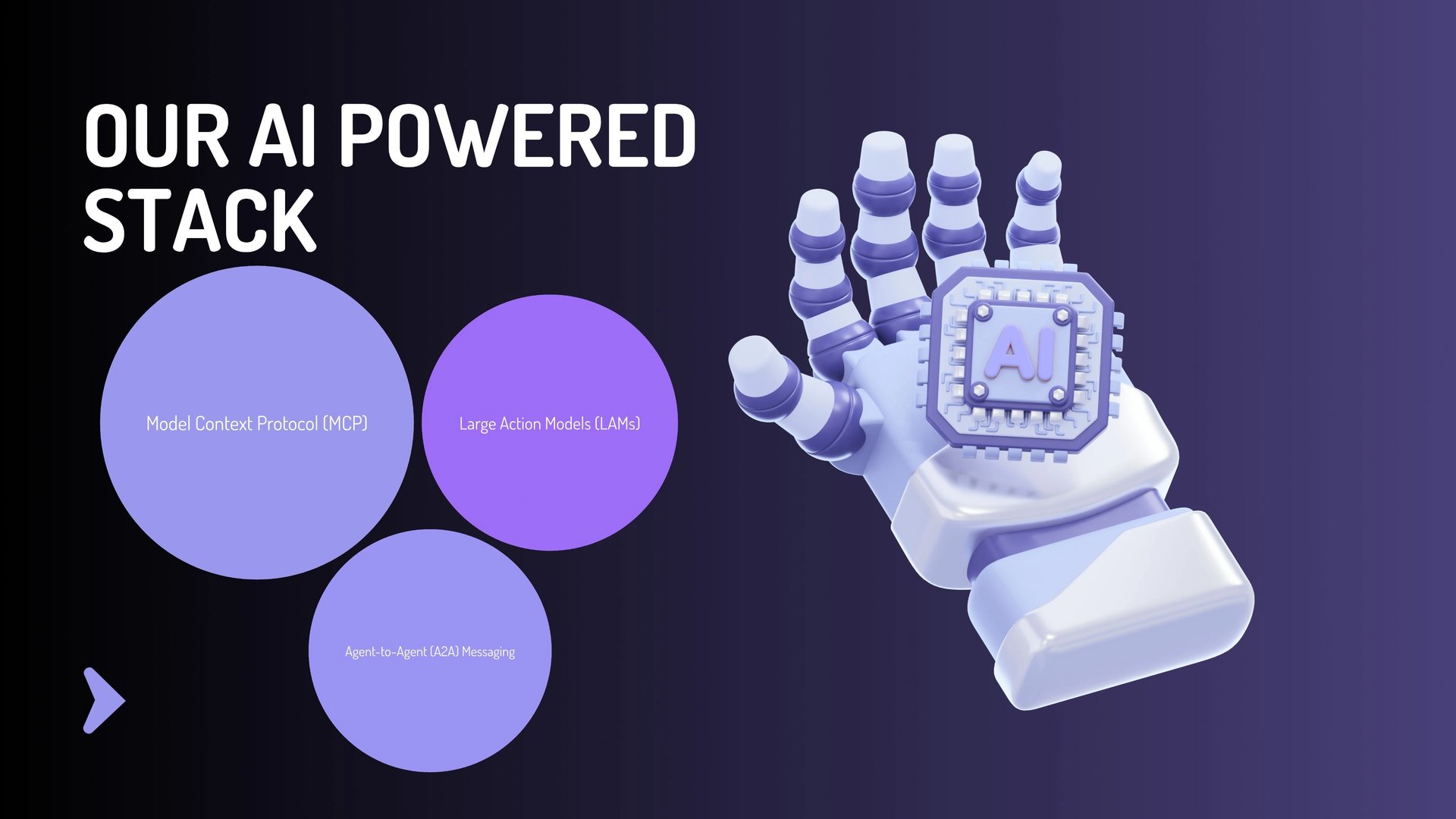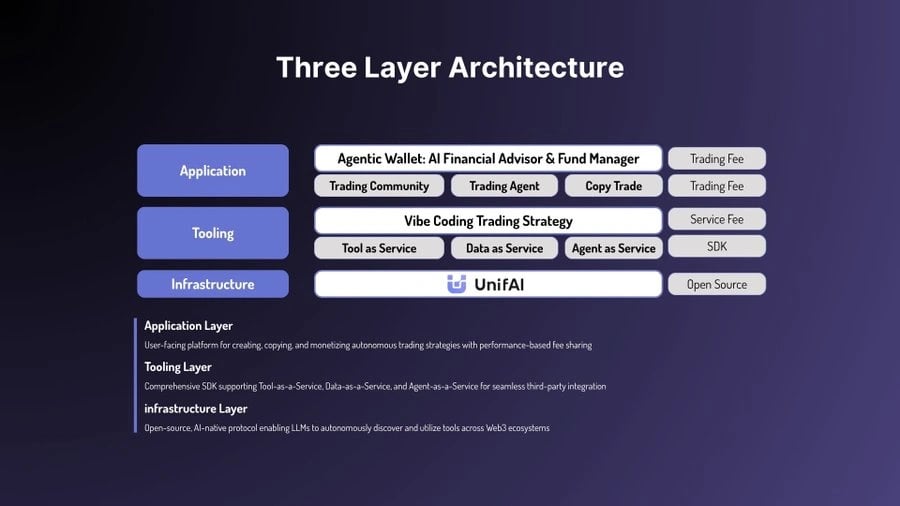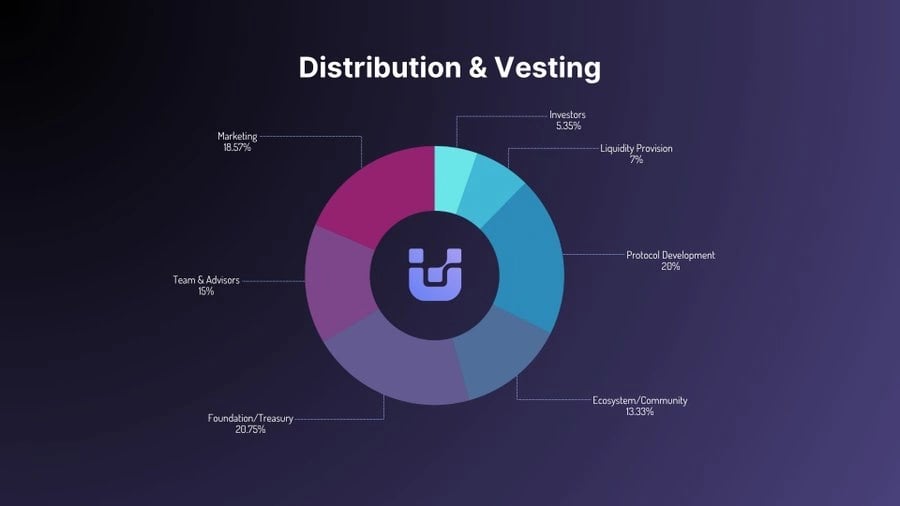Subscribe to wiki
Share wiki
Bookmark
UnifAI Network
The Agent Tokenization Platform (ATP):Build autonomous agents with the Agent Development Kit (ADK)
0%
UnifAI Network
UnifAI Network is a decentralized infrastructure platform that enables autonomous AI agents to operate across DeFi protocols. It provides the tools and architecture for users and developers to automate financial strategies, execute transactions, and build adaptive, on-chain AI systems. [1]
Overview
UnifAI is an infrastructure platform for autonomous AI agents designed to operate within decentralized finance (DeFi). It enables users to automate financial strategies and decisions, while allowing developers to build, deploy, and scale AI-driven tools across multiple DeFi protocols. The system integrates dynamic tool discovery, autonomous task execution, and a unified API that connects to various DeFi ecosystems. Agents using UnifAI can independently locate and use tools, manage workflows, and perform operations such as trading, lending, and liquidity management. The platform supports any large language model (LLM) with function-calling capabilities and adheres to a security-first approach, keeping sensitive data on the client side. UnifAI aims to simplify DeFi participation by automating complex strategies, reducing manual decision-making, and offering modular infrastructure for developers. It is intended for a range of users, including DeFi professionals, newcomers, and AI developers, providing an adaptable framework for creating and operating autonomous financial agents. [2]
Features

UnifAI develops an agent-based financial infrastructure where autonomous AI agents perform trading, advisory, and portfolio management functions directly on-chain. These agents operate continuously, adapting to market data and user objectives while executing transactions, managing risk, and optimizing performance across multiple DeFi protocols.
The platform defines this model as Agentic Finance—a system where intelligent, self-governing agents replace static automation. These agents use modular components to analyze markets, execute transactions, and learn from results. UnifAI’s framework relies on several core functions: configuration (monitoring cross-chain data and sentiment), execution (automated on-chain actions), and optimization (self-improvement through feedback and performance metrics).
Web3 infrastructure enables this autonomy by providing open access to DeFi protocols, composable architecture, and transparent transaction records. Supporting technologies include the Model Context Protocol (for both live and historical data), Agent-to-Agent Messaging (for collaboration between agents), and Large Action Models (for translating insights into complex on-chain actions). [3]
UAI

UAI is the native utility and governance token of the UnifAI Network. It supports the platform’s operations by enabling payments for AI-driven services, granting governance rights, and facilitating staking mechanisms that maintain and secure the network.
The token’s structure is designed to promote long-term participation, featuring phased vesting for investors and team members, as well as dedicated allocations for development, treasury, and community incentives. Within the ecosystem, $UAI is used for accessing services, voting on protocol updates, and participating in staking to operate or support AI and DeFi modules. It also underpins a revenue-sharing system that redistributes a portion of network fees to contributors, creating a self-sustaining economy centered on collaboration and governance. [4]
Tokenomics

UAI has a total supply of 1B tokens and has the following allocation: [5]
- Foundation & Treasury: 20.75%
- Protocol Development: 20%
- Marketing: 18.57%
- Team & Advisors: 15%
- Ecosystem/Community: 13.33%
- Liquidity: 7%
- Investors: 5.35%
Partnerships
See something wrong?
The Agent Tokenization Platform (ATP):Build autonomous agents with the Agent Development Kit (ADK)
